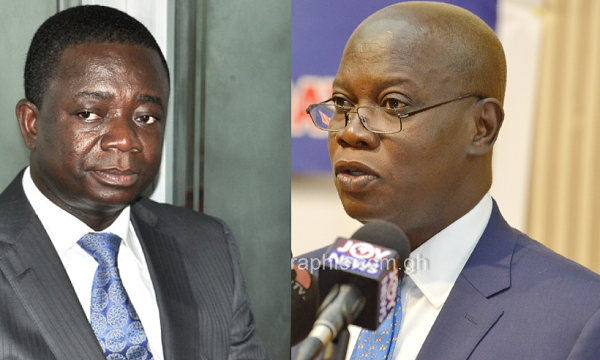
Supreme Court orders AG to hand over documents to Tevie, Opuni and others
Persons charged with criminal offences can now heave a sigh of relief because the Supreme Court has granted them access to prosecution documents in relation to their cases.
In a landmark judgement on Thursday, a seven-member panel of the court unanimously declared that accused persons, irrespective of the offences levelled against them, must be given prosecution documents to aid their effective defence.
Such disclosures by the prosecution, the court held, were in line with Article 19 Clause 2 (e) and (g) of the 1992 Constitution which bordered on accused persons’ right to fair trial.
“Non-disclosure is a potent source of injustice. A trial cannot be fair if the prosecution is allowed to keep materials to its chest in order to spring a surprise to achieve a conviction,’’ it held.
Mrs Justice Sophia Adinyera read the unanimous decision of the court, while Mr Justice William Atuguba presided over the panel.
Other members of the panel were Mr Justice Julius Ansah, Mr Justice Jones Dotse, Mr Justice Anin Yeboah, Mr Justice Sule Gbadegbe and Mr Justice Yaw Appau.
Read also: Attorney-General rubbishes Stephen Opuni’s request
Constitutional interpretation
Thursday’s landmark decision by the court was a constitutional interpretation of Article 19 Clause 2 (e) and (g), and by effect all prosecutors (the Attorney-General’s Department or those acting on its behalf, such as police prosecutors) must comply.
The interpretation basically repeals portions of the Criminal and other Offences (Procedure) Act, 1960 (Act 30), which allowed disclosures in only indictable trials (trial by jury, such as murder) and not summary trials (trial by a judge, such as robbery and defilement).
Article 19 (2) (e) of the 1992 Constitution states: “A person charged with a criminal offence shall be given adequate time and facilities for the preparation of this defence.”
Article 19 (2) (g) states: “A person charged with a criminal offence shall be afforded facilities to examine, in person or by his lawyer, the witnesses called by the prosecution before the court and to obtain the attendance and carry out the examination of witnesses to testify on the same conditions as those applicable to witnesses called by the prosecution.”
Article 19 Clause 2 (e) and (g) of the 1992 Constitution were referred to the apex court for interpretation on February 1, 2018 by the High Court hearing the $4m National Communications Authority (NCA) case in which five individuals are standing trial.
The five accused persons are Eugene Baffoe-Bonnie, a former Board Chairman of the NCA; William Tetteh Tevie, a former Director-General of the NCA; Nana Owusu Ensaw, a former board member of the NCA; Alhaji Salifu Mimina Osman, a former Deputy National Security Coordinator, and Mr George Oppong, a private businessman.
Their lawyers had argued that per Article 19 Clause 2 (e) and (g), their clients were entitled to all the prosecution documents in relation to the case.
Also, lawyers for Dr Stephen Kwabena Opuni, the immediate past Chief Executive Officer (CEO) of the Ghana Cocoa Board (COCOBOD), who is standing trial for allegedly causing GH¢217.3m financial loss to the state, made a similar case.
What can be disclosed
In its decision, the Supreme Court was of the view that “adequate time and facilities”, as captured in Article 19 (2) (e), meant that accused persons must be afforded all the means necessary to properly defend themselves.
In view of that, it stated that the prosecution must release all documents that would assist accused persons in the preparation of their defence.
Accordingly, it held that accused persons must be given access to all statements made to the police by persons who would be used as prosecution witnesses and even those who would not be used as witnesses by the prosecution.
Again, the court ordered that accused persons must be provided with all the exhibits and documents which the prosecution would tender as evidence.
Limitations
The Supreme Court, however, held that blanket disclosure of documents was not possible, as every disclosure must be for the public good, while other factors must be considered before such disclosures were made.
It, therefore, ordered that the disclosures must be at the discretion of the prosecution, and that such disclosures must be relevant, admissible and not endanger witnesses or law enforcement officers.
“The right to disclosure is not unlimited,’’ it held.
The court, however, held that the discretion given to the prosecution to determine whether to disclose a document or not was also not unlimited.
Such discretion, it held, must be subjected to review by a law court.
What this means is that if the prosecution uses its discretion not to disclose a document, an accused person can apply to a court to quash that decision. That court, if it rules in favour of the accused, will then order the prosecution to release the document.
